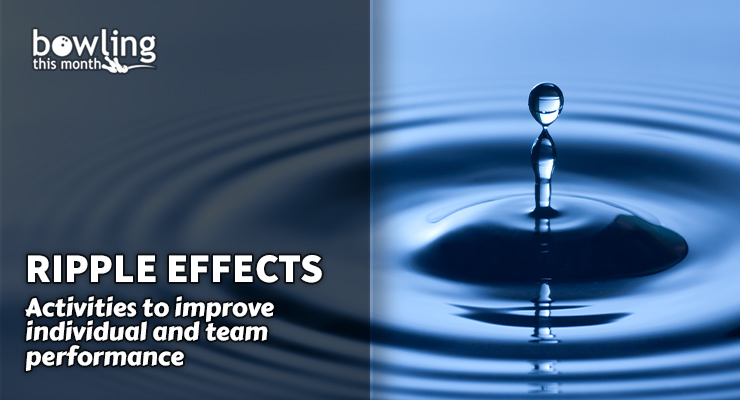Article Contents
- 1. Fundamentals of Ripple Effects Mapping
- 1.1. Step one: conduct an appreciative inquiry
- 1.2. Step two: group reflection and small group sharing
- 1.3. Step three: mind mapping
- 1.4. Step four: analysis and coding
- 2. The “Four D” Model
- 3. Mid-season check-in
- 4. The Group Environment Questionnaire (GEQ)
- 4.1. Group integration task orientation survey questions
- 4.2. Individual attraction to group task orientation survey questions
- 5. Concluding remarks
- 6. References
Note: This article is only available to Bowling This Month subscribers.
As we enter the start of the bowling season, college athletes will be returning to campus with great optimism for their team’s potential success in the 2021-22 season. The hope and optimism of this time of year make it one of my favorite parts of the season. In addition, high school, national club league teams, and national teams are preparing for their seasons or for tournaments with the goal to peak at specific times of the season. In short, all teams want to be ready when it matters most. In the university bowling community, all work leads to the spring, as it is always about March and April and post-season tournament bowling.
Throughout my career as a coach, I have explored methods and approaches to help my teams have any potential competitive advantage based on all aspects that we could control. I am a firm believer that teams excel when they work diligently on all aspects they can control. From sport science techniques to team-building procedures, I am always exploring potential program adaptations grounded in evidence-based innovation, research, and best practices. Recently, I came across an evaluation process called Ripple Effects Mapping (Chazdon et al., 2017). Its participatory and appreciative nature makes it an ideal way to evaluate your program and build programming with bowlers and coaches in collaboration. Moreover, it provides an opportunity for new athletes to hear all of the positive outcomes and ...
Already a premium member? Click here to log in.


